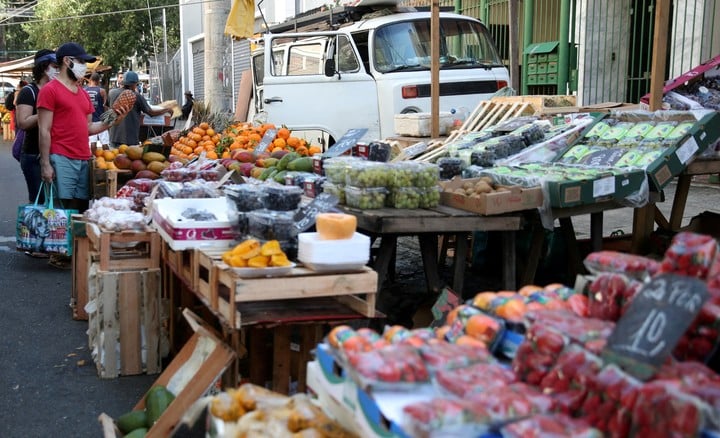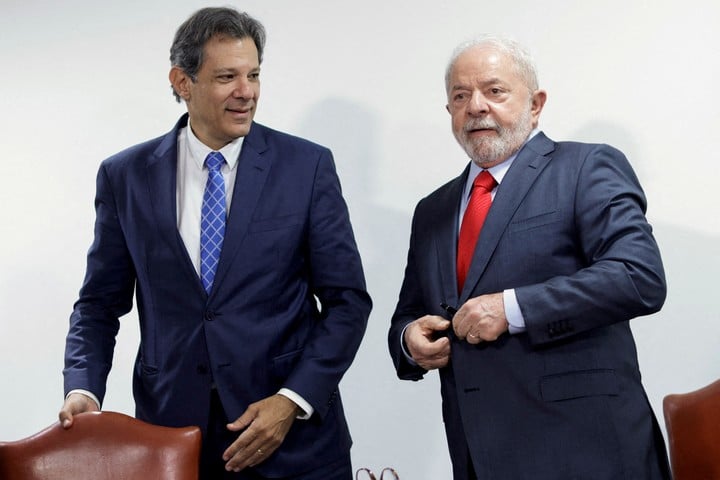Brazil begins to tame inflation and cuts interest rate to 13.25% for first time in nearly three years
Brazil’s Central Bank (BCB) finally gave in on Wednesday to pressure from the Lula da Silva government and cut the country’s key interest rate by 0.50 percentage points to 13.25% per annum. the first rate cut in nearly three yearsfrom September 2020 and the start of a “flexibility” cycle.
After a year without fluctuations, the entity’s Monetary Policy Committee (Copom) estimated that “the improvement in the inflation picture” up to 3.1% created the “necessary confidence to start a gradual cycle of monetary easing”, as reported by the BCB in a statement at the end of a new meeting.
Lula’s government has insisted since taking office in January on the need to lower interest rates to make credit cheaper to encourage consumption and investment. And it marked the contrast of low inflation (3.1%) against extremely high rates, which cachectic growth.
Hours before the Center announced its decision, the president had returned attack on the Central presidenteconomist Roberto Campos Neto, whom he denounces for not cutting interest rates earlier.
In an interview with foreign correspondents he said that he “honestly” does not know who “Kambos Neto serves”.
“This guy from the Central Bank (for the president), I don’t know what he understands, but it seems to me that he doesn’t understand Brazil and he doesn’t understand the world. So there is a logic, I don’t know who it serves, I don’t know, I honestly don’t know. It’s not in Brazil’s interests,” Lula said before learning of the rate cut.
“I’m waiting (for the rate to drop), rather than waiting. I should have taken (this measure) three meetings ago because there is no explanation,” he said.
Lula defended that Brazil “will continue to grow” even with higher interest rates than the government expected. “Brazil today has inflation that has come down and interest rates have gone up.” He then rebuked the monetary entity’s policy again, pointing out that the country “has the highest real interest rate in the world without any explanation.”
Lula also stressed that Campos Neto can only step down as president of the Bank when his term expires in 2024 or when the Senate fires him. The entity is protected by law establishing its independence. “We’re going to keep growing anyway. That will be the pleasant surprise. That’s why I’m calm,” he added.
Government optimism
The International Monetary Fund (IMF), which supports the government’s economic policy, also defends the Central Bank’s caution on interest rates. The council completed its review of the country’s economy, known as Chapter IV, days after the IMF forecast Brazil’s GDP growth of 2.1% for this yearthanks mainly to stable agricultural production in the first quarter of 2023.
“Core inflation has declined sharply since last year’s peak” and will stand at 5.4% at the end of 2023, but “core (excluding food and energy prices) remains high,” the Fund warns. That is why he considers the position of the Central Bank of Campos Neto “adequate” and calls for “a continuous monetary policy with a vision for the future and that depends on data”.
He also insisted on the importance of a “flexible exchange rate regime and adequate foreign exchange reserves” as buffers for the future.
Another positive fact is that The South American giant’s trade surplus jumped 68.7% in July against the same month of 2022, favored by the large drop in imports.
While exports fell 2.6 percent year-on-year to $29,062.4 million in July, imports plummeted 18.2 percent to $20,027.1 million, according to data from the Ministry of Development. Industry and Trade.
The surplus accumulated by Brazil in the first seven months of the year reached a record $54.1 billion, a value 36.6% higher than that recorded between January and July 2022.
In the first seven months of the year, exports rose slightly by 0.4% to $194,742.3 million, while imports fell by 8.9% to $140,642.3 million.
The government projects a surplus of $84.7 billion for this year, which would represent a year-on-year increase of 37.7%. The increase in exports from January was driven by agriculture, whose sales rose 6.1 percent to $49.9 billion.
Source: agencies
#Brazil #begins #tame #inflation #cuts #interest #rate #time #years

